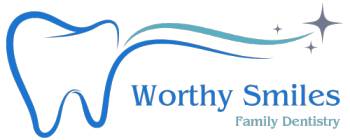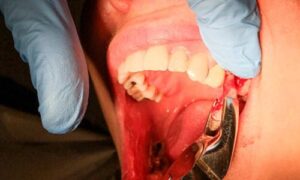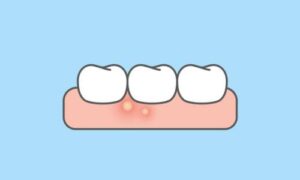Fear and anxiety associated with dental visits are shared among many patients. For some individuals, sitting in a dentist’s chair can evoke intense dread, leading them to avoid necessary dental care. This fear often stems from various factors, including past negative experiences, fear of pain, loss of control, and the general perception of dental procedures. Understanding the underlying reasons behind dental anxiety is crucial for patients and dental professionals to develop effective strategies to alleviate these fears and ensure optimal oral health.
This article explores why some patients fear the dentist and offer insights into managing dental anxiety.
Previous Negative Experiences:
One of the primary reasons patients develop dental anxiety is through past negative experiences. These experiences may involve painful treatments, insensitive dental professionals, or a lack of understanding and communication. Such encounters can leave a lasting impact, triggering a fear response during subsequent dental visits.
Fear of Pain:
Fear of pain is common for individuals who avoid dental visits. Anticipating discomfort, whether real or perceived, can intensify anxiety levels. Past painful experiences or stories from others can contribute to developing this fear, leading patients to postpone or cancel appointments, and resulting in potential oral health complications.
Loss of Control:
A sense of loss of control is another significant factor contributing to dental anxiety. Sitting in a dental chair, feeling vulnerable with tools and instruments inside the mouth, can trigger feelings of helplessness. Patients may fear being unable to communicate their discomfort or take breaks during procedures, adding to the overall apprehension.
Fear of Judgement or Embarrassment:
Some patients are anxious about the condition of their teeth and fear being judged or embarrassed by dental professionals. They may feel self-conscious about the appearance of their teeth, bad breath, or potential dental issues resulting from neglect. This fear can prevent individuals from seeking dental care, further exacerbating their oral health problems.
Dental Phobia:
In severe cases, individuals may experience an intense and irrational fear of dental visits. Dental phobia can be rooted in deep-seated anxieties, often stemming from traumatic experiences, such as dental accidents, invasive procedures, or a specific trigger associated with dental care. Patients with dental phobia may exhibit extreme distress, panic attacks, or even physical symptoms like sweating and trembling at the thought of a dental appointment.
Sensory Overload:
Dental environments can be overwhelming for some patients due to sensory stimuli. The sound of dental drills, the smell of antiseptic materials, or the bright lights can contribute to heightened anxiety. Individuals sensitive to sensory input may find it challenging to cope with these stimuli, further amplifying their fear and discomfort.
Lack of Trust or Communication:
Establishing trust and effective communication between dental professionals and patients is essential to overcoming dental anxiety. Some patients may have had negative experiences where they felt unheard or misunderstood by their dentists. A lack of clear and empathetic communication can exacerbate anxiety, making patients reluctant to voice their concerns or ask questions during appointments.
Between 2023 and 2027, the revenue growth in the mouth care area of the beauty and personal care market in the United States was expected to slow by 1.4 percentage points. This general drop doesn’t always happen, especially not in 2027. In 2027, it is expected that the growth in sales will be 2.51 percent.
Managing Dental Anxiety:
Open Communication:
Dentists should encourage open and honest communication with their patients, allowing them to express their fears and concerns. Taking the time to listen actively and address any questions or uncertainties can help alleviate anxiety.
Education and Information:
Providing patients with detailed information about dental procedures, including the steps involved, potential sensations, and anesthesia or sedation, can help demystify the process. Knowledge empowers patients and reduces anxiety associated with the unknown.
Relaxation Techniques:
Incorporating relaxation techniques such as deep breathing exercises, mindfulness, or calming music during dental visits can help patients manage anxiety and promote a sense of control and relaxation.
Gradual Exposure:
An incremental exposure approach may be helpful for patients with severe dental anxiety or phobia. This involves gradually introducing them to dental environments, starting with simple and non-invasive procedures and progressing at a comfortable pace for the patient.
Sedation Dentistry:
In some instances, dentists may consider sedation dentistry to help alleviate anxiety. Options such as nitrous oxide (laughing gas), oral sedatives, or intravenous sedation can induce relaxation and minimize discomfort during dental procedures.
Cognitive-Behavioral Therapy (CBT):
CBT techniques can assist patients in reframing negative thoughts and emotions associated with dental visits. By working with a therapist, individuals can learn coping strategies to manage anxiety and gradually overcome their fear of the dentist.
Conclusion:
Dental anxiety is a prevalent issue that affects many patients and can have severe consequences for their oral health. Understanding the reasons behind this fear is essential for dental professionals to provide appropriate support and care. By fostering trust, open communication, and utilizing various anxiety management techniques, dentists can help patients overcome their fear and ensure regular dental visits, improving oral health and overall well-being.














